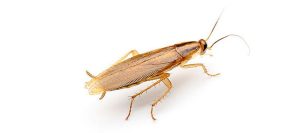Cockroaches
“As Cockroaches demonstrate, what works best in nature does not always appeal to us” – Mark Kurlansky
In ancient Egypt, there was a spell that declared, “Be far from me, O vile cockroach.” Thousands of years later, we’re still trying to oust these insects. But from poison traps to brandished slippers, cockroaches seem to weather just about everything we throw at them. So, what makes cockroaches so hard to kill?
Snappy Facts on Cockroaches
There are nearly 5000 species of Cockraches in the world. 99% of these Cockroach species live in a range of habitats where they play important ecological roles by recycling dead or decaying organic matter and nourihing other animals. A few dozed species, however adapted to living in close association with humans. The most wel-known of these Cockroach species are the German Cockroach and the Amercan Cockroach. These two owe their risilience to a combination of physical and chemical adaptations. When it comes to old-fashioned extermination methods, these two are disturbingly tanancious.

An American Cockroach’s sensory hairs or structures pick up subtle air currents and rapidly sends signals to its central nervous system. The roach can then turn and sprint away within a few miliseconds. The American Cockroach is among the fastest invertebrates ever recorded. It can reach speeds of up to 50 body lengths per second. This will be the human equavalent of running atleast 300km/hr whuch is insane right? Finding a hiding place is also no problem because with its flattened, flexible body, an American cockroach can squeeze into spaces less than a quater of its height. Even if you do land a hit, it can withstand compressive forces of up to 900 times its body weight by distributing the weight along its body length. Its toughness extends even in what it can eat and still survive.
Their Table Manners
Generally, American cockroaches can eat a variety of organic matter including hair, dead skin, adhesives and paper. This is made possible by an expansive set of digestive enzymes in their systems. These cockroaches can also thrive even in nutrient-poor environments. Roaches often eat decaying foods that are low in nitrogen-an essential component of DNA and proteins. Which means they survive by storing nitrogen-containing waste in their bodiesand having a resident group of bacteria recycle the nitrogen into useful molecules.
The German cockroach owe their risilience to theit diet as well which includes eating their own poop, vomit, dead or dying colony members. An American Cockroach will frolic in sewers, consuming excrement and toting microbes like Ecoli. They rarely suffer anny consequences because they are equipped with genes that provide immunity against numerous pathogens. These genes are often duplicated multiple times so that when infected, the cockroach can efficiently employ these defensive microbes.
Cockroaches’ Immunity To Pesticides
Cockroaches also have a slew of defenses to chemical pesticides. For instance, when a non-resistant roach walks on a treated surface with pyrethroid insecticide, the result will be fatal. This is because, once absorbed the chemical binds to sodium channel proteins, which help propagate nerve impulses. The pyrethroid keeps the sodium channels open so the nerves fire repeatedly causing the death of the cockroach. If a pyrethroid-resistant roach is exposed, however, nothing will happen to it. Genetic mutations have given them sodium channels that the pyrethroid cannot bind to. This cockroach also produces more detoxification enzymes which render the pesticide harmless. The cockroach simply excretes it as waste.
As German Cockroaches reproduce very quickly, populations may grow resistant to a new pesticide within a few months. So far, they are resistant to atleast 43 different chemicals. Contrary to popular belief, however, cockroaches would probably not survive a nuclear apocalypse. Compared to other insects, cockroaches are only midly tolerant to radiation. Near nuclear explosions they would die and kilometers away they will be severely compromised. Difficult as it may be to get rid of cockroahces, mutual destruction does not the ultimate solution .
For Effective Extermination of Cockroaches, get in touch with Accend Solutions on 068 474 7303 or visit us online for a free booking.
